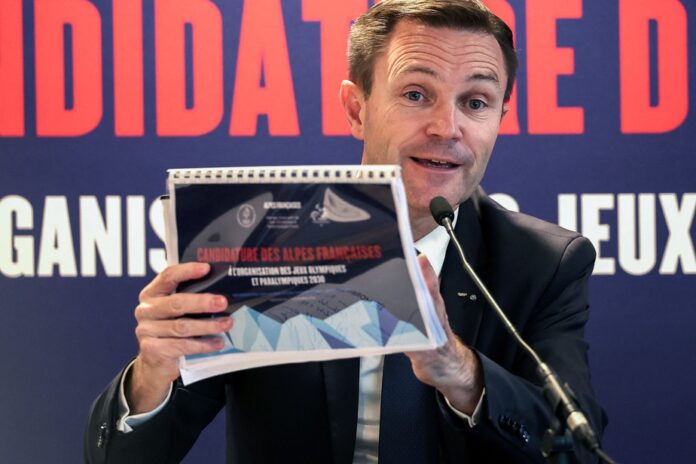(Paris) France has embarked on the quest for a new Olympic adventure by formalizing its candidacy for the Winter Olympics in 2030, spread from Nice to Grand-Bornand and marked by the promise of “sober” Games, based on 95% existing sites.
France will initially be decided in almost three weeks, during the IOC Executive Board which will be held in Paris from November 28 to December 1 and which will decide with which candidates it will enter the dialogue phase. France will then know whether or not it continues this new quest after obtaining the Summer Olympics which will be held in nine months in Paris.
But it faces two serious competitors for these 2030 Olympics, Switzerland and Sweden.
The president of the Auvergne-Rhône-Alpes (ARA) region Laurent Wauquiez, present Tuesday at the CNOSF alongside David Lappartient, and the president of the Provence-Alpes-Côte d’Azur (PACA) region, Renaud Muselier, by video, detailed the different sites of this application.
In PACA, four sites were selected: Nice with an Olympic village, the media center and ice sports (ice hockey, curling, short-track, figure skating, etc.) and the closing ceremony. To do this, an ice rink will have to be built in Nice. Isola 2000 would host ski cross and snowboard cross, Briançon halfpipe skiing and snowboarding, and other events would be held in Montgenèvre.
In the Auvergne-Rhône-Alpes region, the Méribel-Courchevel sector, which hosted the Alpine Ski World Championships in 2023, is planned for downhill, combined and giant events. The Olympic springboard from Albertville to Courchevel would also be reused, with the bobsleigh and skeleton events in La Plagne. Val d’Isère would host the men’s and women’s slalom. In Haute-Savoie, La Clusaz would be used for cross-country skiing events and Grand-Bornand for biathlon in particular. The site for the opening ceremony has not yet been chosen.
“We will refine the cost of these Olympics during the targeted dialogue,” promised David Lappartient, while an initial budget of 1.5 billion euros had been announced.
During the presentation of this candidacy, former biathlon star Martin Fourcade provided his “committed support” to this candidacy by videoconference. “We are in a changing world and these Olympics are part of this change. The Olympics of tomorrow cannot be identical to the Olympics of yesterday. We must not build white elephants, these demons of the past that we do not want to reproduce.”
This is also one of the promises of this application which promises to use 95% of already existing sites.
“We believe that the 2030 Winter Olympics can be to the Winter Olympics what Paris-2024 is to the Summer Olympics […], those of a complete reform, in a changing world […] with games sustainable, economical,” assured David Lappartient.
“We only left five months ago. We did a gigantic job all together,” explained Laurent Wauquiez. “There is this desire to bring the Olympics back to our mountains 30 years after. » France has already hosted the Winter Olympics three times: in Chamonix in 1924, in Grenoble in 1968 and in Albertville in 1992.
“We know there are big competitors. We also know that we are going to continue with the Paris Olympics. We are both very humble and very modest. There is great momentum,” assured Laurent Wauquiez.
“We are in a very good position to win. Our assets are our ski areas. We have the support of our elected officials, of the President of the Republic,” recalled Renaud Muselier, dismissing the risk of light snowfall. “We’ve done studies showing we’ll have snow until 2050,” he said.
The final choice of the future host of these 2030 Winter Olympics will take place during an IOC session in 2024, perhaps the one planned for July in Paris if France is no longer in the game, or during a session fixed outside France if it is still in the running.















